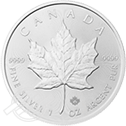WHAT IS COUNTERPARTY RISK AND WHY DOES IT MATTER TO ME?
Counterparty risk is a term often used in financial circles but is also a term that many investors do not understand. Here we will examine just what counterparty risk is and how it may affect you and your investments.
According to Investopedia, counterparty risk is defined as “The risk to each party of a contract that the counterparty will not live up to its contractual obligations. Counterparty risk is a risk to both parties and should be considered when evaluating a contract.”
According to Investorwords.com, counterparty risk may be defined as “The risk that the other party in an agreement will default. In an option contract, the risk to the option buyer that the writer will not buy or sell the underlying as agreed. In general, counterparty risk can be reduced by having an organization with extremely good credit act as an intermediary between the two parties. ”

THE SIMPLE DEFINITION
Counterparty risk simply means someone may not hold up there end of the bargain. In other words, a party may not keep their promise or may not be able to keep their promise.
WHERE DO I EXPERIENCE COUNTERPARTY RISK?
The fact is that all of us have counterparty risk in one form or another. When one buys a house and takes out a mortgage, for example, he or she has entered into an agreement with the bank or mortgage company. The buyer is obligated to pay the mortgage company or bank according to the terms of the agreement. The bank or mortgage provider has responsibilities as well, such as accounting of the agreement, payment of taxes or escrow and various loan servicing duties. If the buyer does not pay according to the terms of the agreement, then the buyer is said to be in default. If the bank or mortgage company does not handle its obligations, then it is not holding up its end of the deal.
Now, let’s look at counterparty risk a bit with regards to financial markets. One very common theme that is seen today is investors thinking that by purchasing a “gold-backed” paper security that they now own gold. They in fact, do not. These paper assets can potentially give one a false sense of security. Let’s look at why. Let’s suppose for a moment that one buys shares in GLD, otherwise known as SPDR Gold Shares. This ETF security is intended to allow investors a way to access the bullion market without having to take physical delivery of the gold. In addition, investors may then buy or sell their shares on a regulated exchange. Shares of GLD represent fractional, undivided beneficial ownership interests in the trust’s assets which are gold bullion and sometimes cash. Let’s think about a few issues surrounding this type of setup. First of all, how does one know exactly what the trust is holding? Where are they holding it? Will it do me any good if I need gold in an economic or geopolitical emergency?
The reality is that if one owns shares of this type of product, then he or she owns a “promise.” In the case of GLD, that promise is that the trust owns the stated amount of gold bullion and/or cash. Now, how does counterparty risk play into this? In multiple ways. If one owns shares of GLD, one has the following layers of risk:
- What if the amount of gold owned by the trust is not accurate?
- What if the trust’s accounting firm has made an error?
- What if the company holding the bullion has made an error?
- What if that bullion is somehow misappropriated or stolen?
- What if there is a run on gold?
This list can go on and on. Are any of these scenarios likely? No, but they must be considered. Perhaps the most important thing to consider is the fact that even if you invest in GLD, you will never see the physical gold. In fact, the company is not obligated to deliver physical gold to anyone.
Now, let’s look at physical gold ownership. If one is holding a 1 ounce gold coin in their hand, and they want to trade that gold coin for cash or for other consideration, where is the counterparty risk? There isn’t any. He or she hands over the gold for the cash or other consideration period. Done and done. Simple and clean.
Counterparty risk may be encountered in financial markets in many other ways as well. For example, when one makes a deposit to their bank account, they are walking away with a promise from the bank that their money is safe and sound and that it will be returned. The bank, however, can invest that money however they like-it is under their control. Although banks are generally considered safe places to put cash, they do carry counterparty risk. Just ask investors in Cyprus who had their accounts raided to cover debts.
The fact is that financial assets require a promise-a promise to repay, return, deliver or take some other type of action. With physical ownership of hard, tangible assets such as gold or silver, these promises are not necessary.
To learn more about counterparty risks and how physical gold or silver ownership can help avoid these risks, contact an Advantage Gold specialist today at 800-341-8584.



